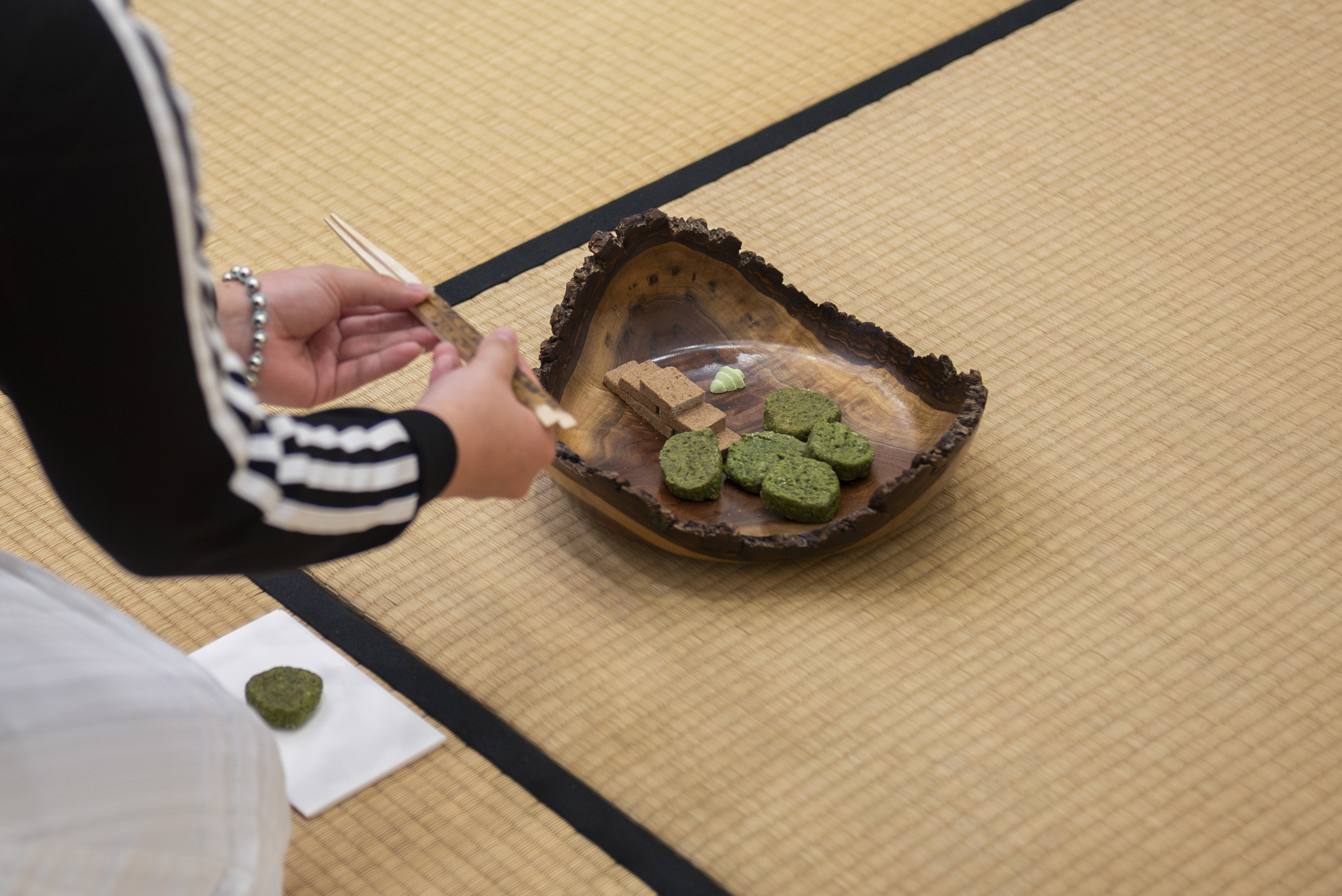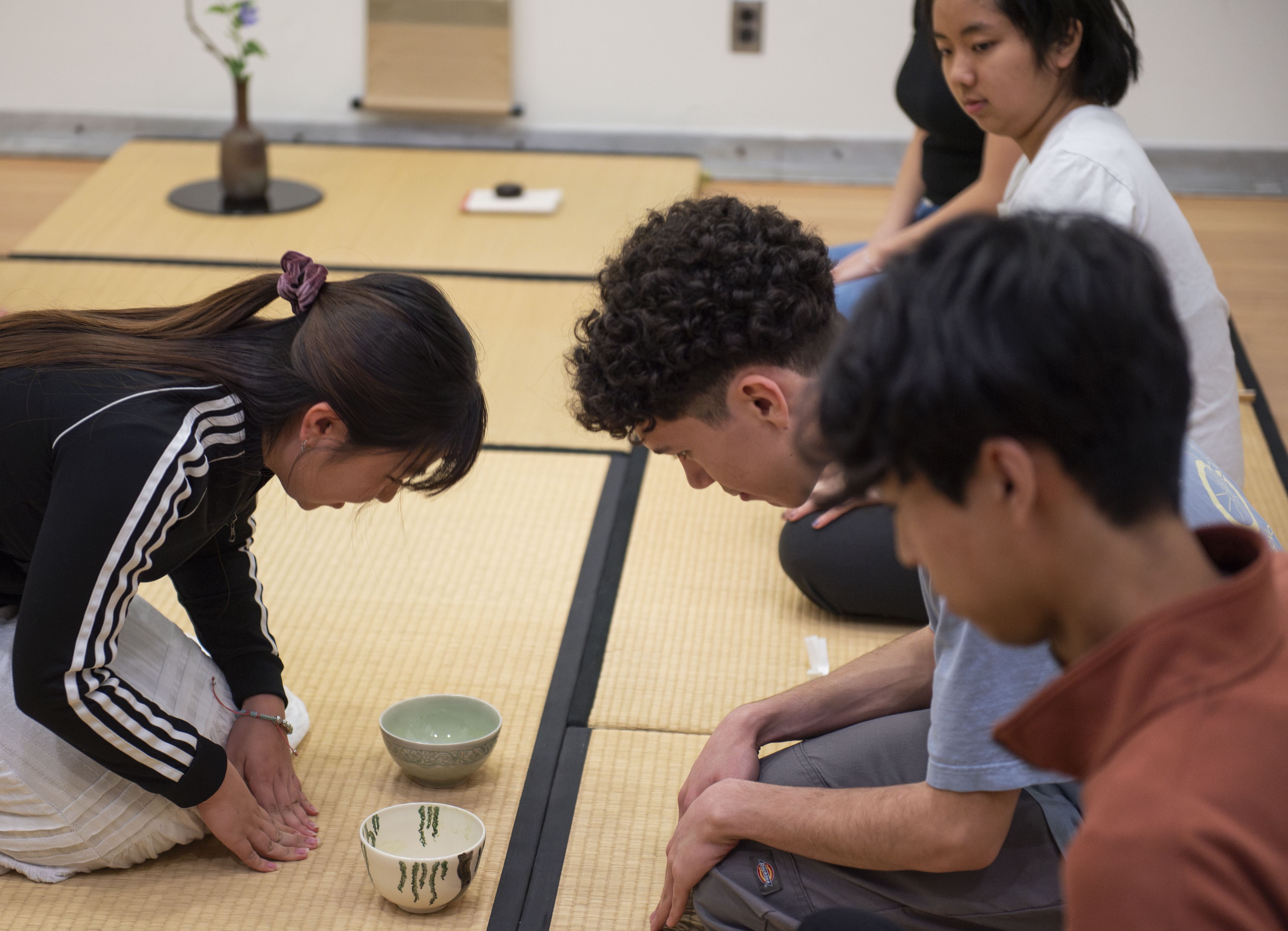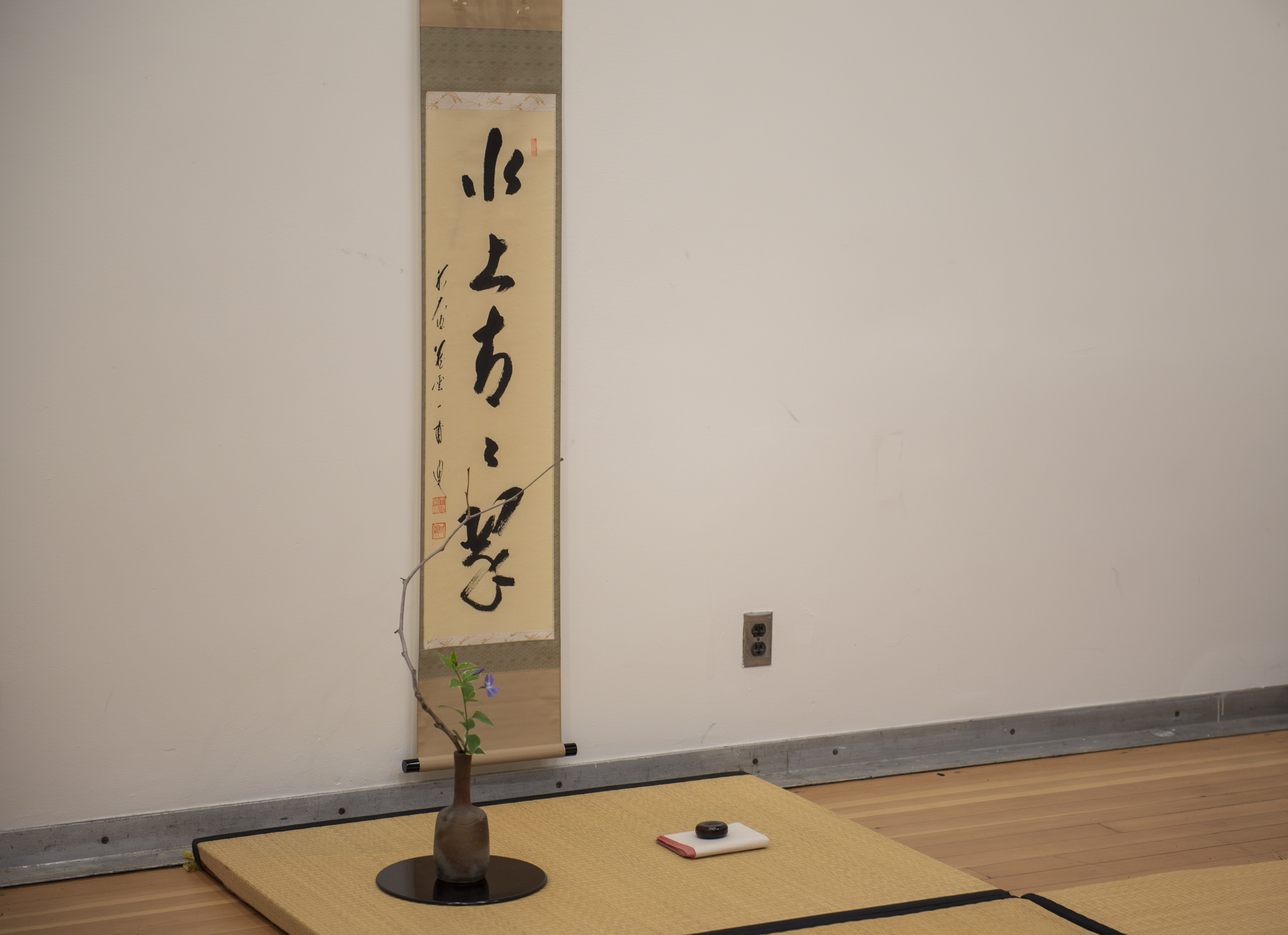UTeaLA steeps well-being, Japanese tradition into ceremonies and community
UTeaLA club members participate in Japanese tea ceremonies, or chado. The club, founded in 2022, meets every Tuesday to take part in the ceremonies. (Andrew Diaz/Daily Bruin)
By Sophia Pu
Feb. 25, 2025 12:25 a.m.
This post was updated Feb. 26 at 1:40 a.m.
A room inside Macgowan Hall went quiet as students shuffled across tatami mats, kneeling to acknowledge a purple flower and bowing to accept a bowl of matcha tea.
UTeaLA, a club founded in 2022, meets every Tuesday in Macgowan Hall to practice Japanese tea ceremonies, or chado – which translates to “the way of tea.” Michelle Liu Carriger, the club’s faculty advisor and main instructor, said the club teaches from the Urasenke school of chado, which has been performed since the 16th century.

Urasenke emphasizes specific traditions in matcha preparation, hospitality and artistry, Carriger said.
Every movement in the tearoom is meticulous – including how people step between tatami mats and rotate their bowls before drinking, said Kyle Yang, UTeaLA’s webmaster and vice president. Club president Alisa Huang said such precision encourages the appreciation of small details.
“It’s a lot of emotional and mental well-being, because it’s an hour of the most peaceful experience possible where you’re focusing on only tea,” said Ashley Osterhout, a second-year psychology student and club member. “It’s complicated enough that you have to forget about everything else in your life, but it’s not stressful at all because if you make mistakes, everyone here is so forgiving.”
When guests enter the tea room, they first sit to gaze at the tokonoma – a space including decorative items such as a scroll, a flower and an incense box, Huang said. This is followed by the host serving sweets and officially starting the ceremony, said Yang, a fourth-year computer science student.

Additionally, the focus on bowing at the right times reflects a culture of kindness and respect, Osterhout said.
One of the most complicated rituals is when the host purifies their tools, prepares the tea and cleans their tools again to restore their original states, Yang said. When receiving a tea bowl, guests bow to their server, gesture appreciation for the tea and excuse themselves to the person after them for drinking first, he said.
Club leaders said they strive to keep the environment low pressure and open to anyone.
Huang, a fourth-year nursing student, said the activities she thought would be fun when she was growing up ended up being environments where she was terrified of messing up. Carriger, the chair of the theater department, said UCLA students especially struggle with fear of failure.
“Tea – for me and for a lot of people, I think – functions also as a method of slowing down,” said Carriger, an associate professor of theater and performance studies.

Carriger, who has studied Urasenke tea practices for 26 years, said the practice is fulfilling because it teaches people how to appreciate the beauty in the ordinary. Now, as an instructor with a second-degree teaching license from the Urasenke tea tradition, they said they embrace a teaching style that highlights multiculturalism.
“It really sits in this complicated, 21st-century moment of, how do we … preserve traditional cultures?” Carriger said. “How do we do it respectfully and carefully across national boundaries?”
Osterhout said one of the most exciting experiences she had in fall quarter was going to Shoseian, or Whispering Pines Teahouse, in Glendale.
According to a UTeaLA Instagram post, the club went in December for Robiraki, which translates to “opening the sunken hearth.” It celebrates the winter transition from boiling water in an above-floor brazier to an underground hearth.
In addition to enjoying tea and sweets, Osterhout said UTeaLA members witnessed real charcoal being used in the hearth.
Huang said she wants to do more field trips, events and workshops for elements such as flower arranging, making sweets and wearing kimonos.
“You really realize that tea can be so complicated,” Osterhout said. “Not a lot of clubs take something super mundane and part of your everyday life and then expand on it this much.”
